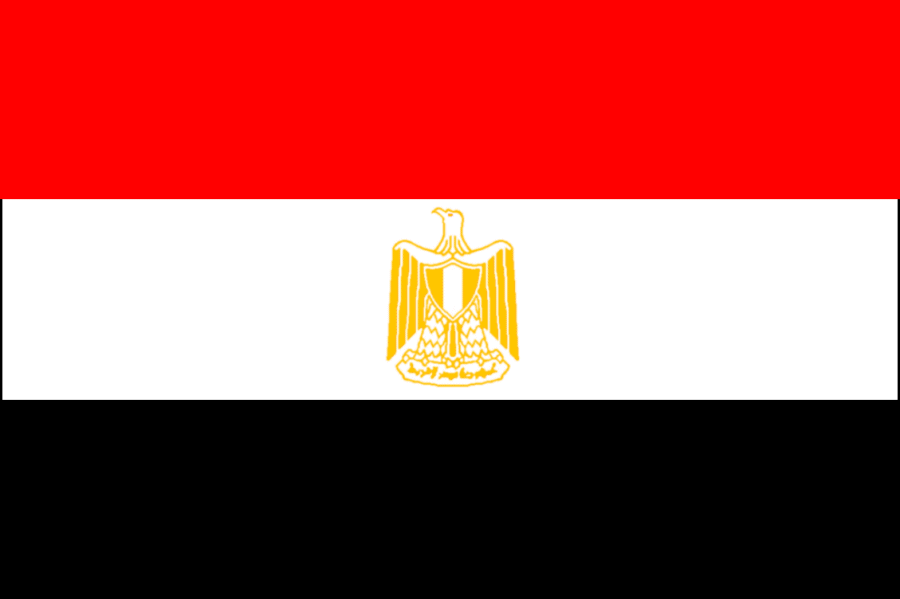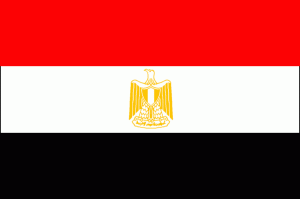World news
Egypt elects radical President

Egypt elected a radical President last week. During the campaign, Mohammad Morsi called for Sharia law and a war with Israel, with Jerusalem as his objective. But now that he seems to have the votes, he talks only of “peace and unity.” He might be doing that because he does not have the army behind him, and knows it.
Egypt election results
Morsi was the candidate of the Muslim Brotherhood. More than thirty years ago, the Muslim Brotherhood arranged for a team of assassins to “frag” President Anwar el-Sadat while the army passed in review before him. Hosni Mubarak succeeded him, purged the army, and forbade the Muslim Brotherhood to run election candidates ever again.
Last year, in the “Arab Spring,” Hosni Mubarak fell from power. Last week, Morsi ran against Mubarak’s former Prime Minister, Ahmed Shafiq. Morsi won, with 52 percent of the vote. In his victory speech, he called at once for “peace and unity” in his country. He also pledged to honor the treaties Egypt now has with various countries. (But Fox News Channel, at 9:24 a.m. today, quoted him as wanting to “rethink” the Camp David Treaty. He also wants a stronger tie with Iran.) But a month ago he talked of imposing Sharia law in Egypt.
This Presidential election provoked domestic violence. An Egyptian beat his pregnant wife to death after she refused to vote for Morsi. That, according to Al-Arabiya News, was only one of many such cases. It also shows how badly Muslim Brotherhood supporters would like to go to war with someone, to show how much power they have.
More to the point, secular parties in Egypt bitterly accused United States diplomats of supporting the Muslim Brotherhood. Putative President Barack H. Obama has already called Morsi on the telephone to congratulate him on his win.
Warlike rhetoric
Mohammed Morsi scares officials in Israel, and friends of Israel, with his rhetoric. He called for Sharia law, but that’s not all. He also called for a wider war in the Middle East.
Our capital shall not be Cairo, Mecca, or Medina. It shall be Jerusalem!
The Muslim Brotherhood also has an important ally across the Sinai border. HAMAS (or in English, “Islamic Resistance Movement”) controls the Gaza Strip. HAMAS is also a Muslim Brotherhood creature.
Morsi has many “man-on-the-street” supporters who say the same thing.
Israeli officials have feared this for months. Rav Aluf Benny Ganz, chief of staff of the Tzahal (Defensive Armies of Israel), earlier called up six battalions of reserve troops and has authority to call up sixteen more.
What will the army do?
Rhetoric aside, Morsi cannot go to war with any country if he does not have the army behind him. And he might not.
Earlier this month, the Supreme Court of Egypt ruled that the parliamentary elections were not valid. The Muslim Brotherhood had taken most of the seats in those elections. The Supreme Council of the Armed Forces took their cue from the Court and dissolved Parliament last week. They also said they would limit severely the power of the President of Egypt.
Forty-five years ago, Gamal Abdel Nasser moved troops to the Sinai armistice line and closed the Straits of Tiran. That provoked Israel to attack Egypt, destroy the Egyptian Air Force on the ground, and seize the Sinai. Six years later, Anwar el-Sadat ordered his army to take the Sinai back. Instead, Israeli troops almost annihilated a large part of the Egyptian army. The only reason they did not was that the Soviet Union threatened to “go nuclear” if the Tzahal did not let the Egyptian forces retreat. Sadat then traveled to Jerusalem to sue for peace. Six years later, he and Menachem Begin signed the Camp David Treaty.
Nasser and Sadat had the army behind them when they acted. Muhammad Morsi does not. The army wants to limit his power, and maybe make him a figurehead (like the Queen of England). If Morsi and the generals cannot come to terms on how to run Egypt, Morsi could never order the armed forces to attack Israel and expect them to obey him.
The army doesn’t even seem to have control of the Sinai Peninsula. Terrorist groups and smugglers move about and work there, and the army can’t or won’t stop them.
So yes, Egypt has a new, radical President. This new President scares many people with his rhetoric. But he does not have the army behind him. Until he gets the army behind him, his rhetoric is nothing more than hot air.
[amazon_carousel widget_type=”ASINList” width=”500″ height=”250″ title=”” market_place=”US” shuffle_products=”True” show_border=”False” asin=”B002EQA102, 0471679526, 044654146X, 0789209284, 0688123635, 0345461924, 0253349184, 1929354002, B00005S8KR, B000RPCJPC” /]

Terry A. Hurlbut has been a student of politics, philosophy, and science for more than 35 years. He is a graduate of Yale College and has served as a physician-level laboratory administrator in a 250-bed community hospital. He also is a serious student of the Bible, is conversant in its two primary original languages, and has followed the creation-science movement closely since 1993.
-

 Executive4 days ago
Executive4 days agoSecret Service chief gets no solace
-

 Executive3 days ago
Executive3 days agoWaste of the Day: Louisville Taxpayers Pay Nearly $600,000 For Empty Building’s Maintenance, Security
-

 Guest Columns5 days ago
Guest Columns5 days agoFear Itself: Democrats’ Favorite Strategy Caused Their Current Chaos
-

 Executive3 days ago
Executive3 days agoWhere is Joe Biden – or Jill?
-

 Executive2 days ago
Executive2 days agoWaste of the Day: Throwback Thursday: Cities Used Crime Prevention Funds on Soccer Games, Paper Shredding
-

 Executive2 days ago
Executive2 days agoFacile and politically motivated suggestions
-

 Civilization5 days ago
Civilization5 days agoBuild Iron Dome in the United States To Prepare for Israel’s Worst Day
-

 Executive2 days ago
Executive2 days agoBiden makes farewell whisper




What news of Kamal Ganzouri. Will he continue on as PM?
I don’t think it a wonder that a predominately Muslim country would eye a Sharia-based system. It would depend on how closely they adhere to the 1500 year old edicts before I would get worried, (and only worried insofar as it affects the average Egyptian citizen).
How other countries operate is little of our business.
They make it our business when they attack us or our friends.
However, they’re not likely to do that any time soon. Not until, somehow, someway, those politicians can get control of the army.
The military will never obey an Ikhwan command to violate a peace treaty that their own officers desperately want. The military have a vested interest in keeping the Camp David Accords. They would like to see changes, particularly in nature and geography of the Sinai treaty zones, but the basic idea of a lasting peace with Israel, and political and military support from the West is extremely beneficial to them.
Egypt’s main military headaches are the power vacuum in Libya (likely a short term problem) and the low level guerilla/terrorist and organised criminal activity by the Arab population in Sinai, which has a symbiotic relationship both with the Israeli mafia and Hamas in Gaza. This is a long term ongoing problem and is the main reason why the military would like Camp David amended in regards to the Sinai treaty zones.
Anyone who seriously thinks the military is up for foreign adventures is quite frankly an idiot.
Well, I didn’t really speculate on what was on the Egyptian army’s mind. If you recall, I specifically doubted that the new President would have the army behind him. And it sounds as though, before he can get the army behind him, he’ll have to purge most of the officer corps.
Now: do you suggest that he would never be able to purge the officer corps? Do you foresee a military coup in Egypt, Egypt in the hands of the military chief of staff, and the dropping of all pretense at civilian control? If you do, I’d like to see some links.
For the record: by Ikhwan I assume you mean a movement in Egypt named after Ibn Saud’s original religious militia.
I think your doubts are well placed, and indeed the military tried long and hard to stymie a lot of Ikhwan (Muslim Brotherhood are the Ikhwan, BTW – the name comes from Saud’s militia, but is historical rather than political, the two movements were not directly related) attempts to swing the balance of power in their favour, and this is likely to continue.
The Ikhwan have never had much traction within the officer corps, and at all periods since the overthrow of the monarchy, the military has held the dominant role in politics. Mubarak’s fall only demonstrated this. He stepped down when the military said so, not before and not after. The helicopters went into the presidential palace, and out came the president. The “revolution” was a military coup that took advantage of popular discontent, and was aware of it, but was not dictated to by it. The military could have extinguished dissent at an earlier opportunity if it had desired to do so. The same strategy could easily be employed again if the Ikhwan attempted to purge the military or circumvent the officer corps.
Such a situation is unlikely, however, not because the military is unable or unwilling to overturn civilian rule, but because the Ikhwan are not crazed fanatics. They are very experienced political operators who know the Egyptian political landscape far better than any other civilian party. They know that they cannot displace the military, and so need to find accommodation with them. The military desires a civilian face to government, which Ikhwan can provide, and in return Ikhwan get to keep part of the loot for themselves, and get to play with certain “safe” policy matters.
As for documents, I don’t have any to hand – but I know the mindset of Egyptian officers very well from much personal experience, and the lefties have crossed swords with the Ikhwan many a time, enough to respect their political skill.
So you’re saying that the new president is full of hot air. He’s telling the people what they want to hear, and has no intention of delivering. Do I read that right?
What made me doubt was that the Supreme Council (a/k/a the Joint Chiefs of Staff) openly say they want to clip presidential wings, and make the president a figurehead.
Why’d the military get rid of Mubarak? How did he become a political liability?
So you’re saying that the new president is full of hot air. He’s telling the people what they want to hear, and has no intention of delivering. Do I read that right?
Yep. Pretty much. Most Egyptians are unhappy with Isreali policy, and want the government to take a tough stance. Morsi knows that tough rhetoric will go down well, but that in reality he can’t really do anything drastic in foreign policy except what the military want. So he gives the people the tough talk, and may make a few gestures in diplomatic circles, but nothing is going to change on the ground except what the military want. For example, he might incorporate renegotiating the Sinai DMZs into “his” policy – since it’s something the military are keen to do for their own reasons, whilst he can get kudos from the people for “being tough”.
What made me doubt was that the Supreme Council (a/k/a the Joint Chiefs of Staff) openly say they want to clip presidential wings, and make the president a figurehead.
They do. But they still want that figurehead, and ideally one who is aware of it and will play along. Morsi is happy to do that if he can get his cut of the loot in return and have some areas of policy to play with, so as to convince the Ikhwan he has delivered them the goods. The public bluster on both sides is essentially each one trying to get a deal that’s favourable to them.
Why’d the military get rid of Mubarak? How did he become a political liability?
It wasn’t one thing as much as a gradual build up of problems that tipped things over the edge. Mubarak wanted his son, Gamal, to succeed him as President. The military wanted someone from the officer corps, ideally Omar Suleiman, though other potentials were kicking round. Gamal has never been in the military and has a finance background. Mubarak also failed to hold back popular demands for electoral reform in 2010, when the Ikhwan contested seats as independents and won more than the military felt was appropriate. Finally he was alienating the population to a dangerous degree, triggering bread riots and textile workers strikes, particularly in the delta cities.
Essentially he was a liability and looked like he was trying to marginalise the role of the military to promote his own family. When the Tahrir protests kicked off the military made a decision to take advantage of the public feeling of the moment to get rid of him, thus protecting the system itself from any serious change, and ensuring they would not be marginalised by a Gamal presidency.
That figures. I’d still be interested in anything that would back this up. But your narrative is consistent with everything that I’ve seen Morsi do.
So the military wanted all along to have one of their own officers take over as President. And Mubarak thought he could start his own dynasty.
What would it cost the Israelis (net-net) to renegotiate the Sinai DMZs?
It depends on how they would spin it to their domestic population. The Israeli public are very similar to the Egyptians in that they have exaggerated ideas of what their military can practically achieve and like politicians who promise to “be tough” against the other side (i.e. Egypt). As such, it’d need to be framed as being an Isreali initiative and one that puts Isreal in a stronger position vis a vis either Egypt or Gaza. Anything less and the PM who enters into negotiations would get hammered by the extreme right, who due to the Israeli electoral system often wind up as kingmakers, and the government would probably be outed in no confidence vote.
If they sell it well, they will be heralded as utilising their political capital with foreign countries well to help contain Hamas and be lauded as some great strategic thinkers worthy of having airports named after the PM. At present I don’t think it could happen a Netanyahu has little interest in playing ball and equates “tough” with “no” to the extent that has largely painted himself into a corner. It would likely need a Kadima led government to make it work.
The IDF themselves are quite tight lipped about their position publicly, and obviously I don’t have an inside perspective on how they think. Pragmatically they would benefit from an enlarged Egyptian force in Sinai as it would squeeze Hamas’ supply lines, and also help in dealing with the endemic smuggling and racketeering in southern Israel. In addition, it would strengthen Egypt’s hold on Sinai and make it less lawless, which benefit Israel indirectly. However, it depends how much they see things in terms of black and white ideology. If there is a strong ideological perspective, it will more likely be seen simply as “Egyptian = evil, therefore more Egyptian troops = threat”. If they are pragmatic, they will be keen to cut a deal, since they would loose little in real terms, but gain quite a few incidental benefits.
[…] an Army favorite could still run for President of Egypt. That candidate did not win. Mohammed Morsi did. Of course, that Morsi was even on the ballot, broke another promise: the Muslim Brotherhood first […]